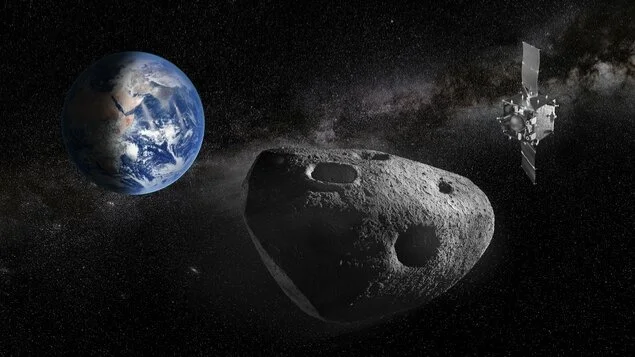Japan to join European space mission to observe near-Earth asteroid
Japan plans to join a European Space Agency mission to observe an asteroid set for a close flyby of Earth in 2029, a source familiar with the matter said Wednesday, with the project seen as crucial to preparing for potential future space rock collisions, Kyodo reports.

Japan is likely to provide equipment and a rocket to launch the probe used in the ESA's Ramses mission. The project aims to rendezvous with Apophis, an asteroid expected to pass within around 32,000 kilometers of Earth in April 2029 -- closer than many geosynchronous satellites and the nearest approach of such a space object in observational history.
While Apophis poses no danger to Earth, a collision with the 340-meter-wide celestial body would be catastrophic. Observation is considered essential for future planetary defense, with the mission also giving Japan an opportunity to raise its presence in the field.
According to the plan, Japan will provide cameras and solar panels for a probe to be launched in April 2028, the source said. After reaching Apophis in February 2029, the probe will observe how the asteroid is warped by Earth's gravity and any potential landslides on its surface to learn more about its composition.
The spacecraft is set to be launched with Japan's own Destiny+ probe aboard an H3 rocket from the Tanegashima Space Center in the southwestern prefecture of Kagoshima. Destiny+, bound for a different asteroid, will also make a brief flyby of Apophis to collect data to aid the Ramses mission's observations, the source said.
The ESA, which requested Japan's cooperation, plans to finalize details of the mission at a ministerial meeting in November. Japan's science ministry intends to include the project in its budget request for the next fiscal year.
While NASA had also planned to send a probe to Apophis, the administration of U.S. President Donald Trump signaled its intention to cancel the mission in its fiscal 2026 budget proposal.
Recall that NASA's Crew-10 astronauts return to Earth after a 5-month mission this August.
